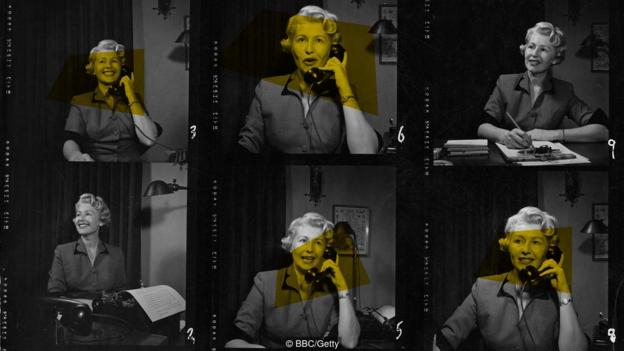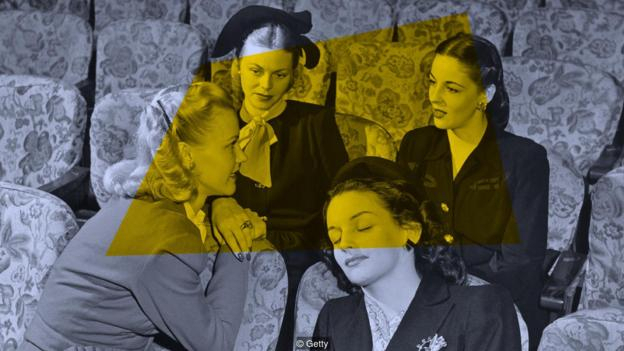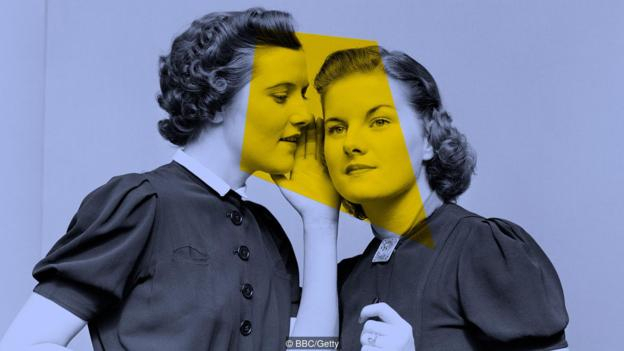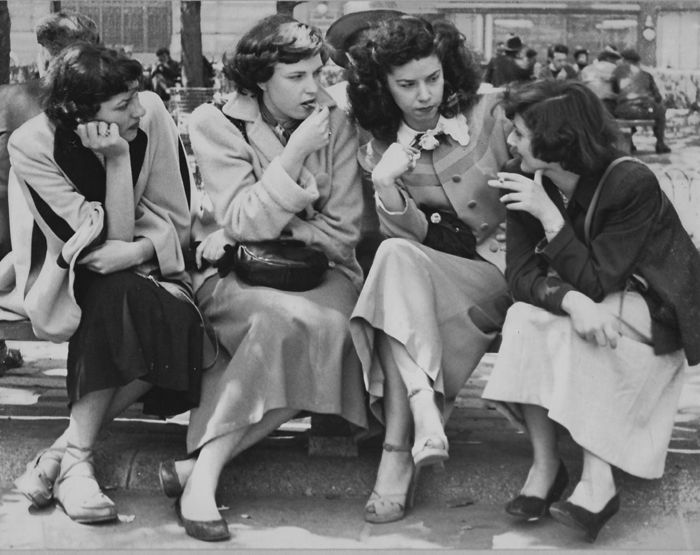Ulysis Cababan was curious. A neighbour of his in Cebu City, Philippines had warned him about a street food vendor they both frequented. The food in that carenderia, or food stall, supposedly was made using tap water – even though locally this was considered unsafe.
Gossip, or chika-chika, is a way of life in the Philippines. But Cababan, who works at a visa agency, wanted to see for himself whether the gossip was true. So, pretending to be looking for a place to wash his hands, he had a look around the vendor’s cooking area. He found buckets of water clearly obtained from the tap, rather than jugs refilled at a mineral water station.
Nervous about foodborne illness, he warned his wife about the vendor. “Maybe because of the gossip the story can reach faster rather than report it to some authority,” Cababan says.
Gossip is often treated with disdain or hostility. But it can be useful for small groups.
There’s an important distinction to make here about how most of us define gossip – as a way of trash-talking someone not present – and how scientists do. In social science, gossip usually is defined as communication about a person who isn’t present in a way that involves evaluation of that person, good or bad.
This kind of informal communication is crucial for sharing information. Gossip is necessary for social cooperation; it’s largely this kind of talk that cements social bonds and clarifies social norms.
And despite common assumption, gossip tends not to be negative – instead, the majority is positive or neutral. One influential study of British conversation found that only 3–4% of the gossip sample was malicious.
An important distinction is between gossip and rumour. Gossip is more inner-circle than rumour. And as explained by Jennifer Cole, a social psychology lecturer at Manchester Metropolitan University, “gossip isn’t about things that are happening in an environment. It’s about people.”

Gossip is different from rumour in that it’s typically true (Credit: BBC/Getty)
This has implications for credibility. “Gossip is typically true,” says Sally Farley, a psychology professor at the University of Baltimore. “So, if it’s misinformation, it would be better characterised as rumour.”
‘Me too’
I’m speaking with Farley one year after the sexual assaultallegations against Harvey Weinstein were published in the New York Times. It makes us reflect on the role of gossip-based whisper networks in informally protecting women from well-known assaulters, in the absence of formal mechanisms that took their complaints seriously.
“People failed to appreciate that the #MeToo movement does fit the definition of gossip,” Farley says. “I believe that this movement was a way for women to fight back and reassert power.”
Of course, this is true beyond the #MeToo movement. “We’re eager to learn information about others,” Farley says. “So when we’re denied access to the formal channels of communication, potentially if you’re an individual with lower status, we do rely upon informal channels, such as gossip networks.”
But despite the longstanding perception that women gossip more than men, there’s no evidence that this is the case.

Men gossip as frequently as women, but in a different way (Credit: BBC/Getty)
What’s clear is that men and women gossip differently. Male gossip is more likely to be self-promoting, and men are more likely to call it ‘exchanging information’ or ‘keeping in touch’. Women also tend to make gossip more entertaining, with lots of details and an animated tone. So exchanges between men may not soundlike gossip – even though they often are.
Celebrity gossip
Although gossip usually refers to people we know fairly well, celebrity gossip is still gossip – thanks to how the ubiquity of certain stars and media coverage of them makes us feel like we know them. After all, they’re often playfully called by their first names, from WillKat to Khloe.

Celebrity gossip also plays a significant role; shown here, Hollywood gossip columnist Sheilah Graham in 1955 (Credit: BBC/Getty)
This kind of gossip has a bigger role than entertainment, too. For one, celebrity gossip is a way to test the waters of different identities and affiliations, especially if these are marginalised. For example, some queer Taiwanese people use celebrity sex scandals to open difficult conversations about their own sexuality.
“I definitely see celebrity gossip as a kind of gateway to/entry point for divulging personal information that people might not feel comfortable doing if they didn’t have that lead-in,” says Andrea McDonnell, a communication and media professor at Emmanuel College, Boston.
It also reveals bigger trends – like the fake news epidemic. When McDonnell started researching American celebrity gossip magazines during the Obama presidency, her respondents told her that the fakeness of the magazines was an aspect they enjoyed. They found it empowering to work out the puzzle of what was accurate and what was fabricated.
“In the same way that ideas of falseness and fakeness have moved from tabloid news into mainstream news, we’ve also seen celebrity culture move from the world of tabloids into the American political landscape,” McDonnell says.

The fake news of celebrity tabloids have permeated wider society (Credit: Getty)
The danger, of course, is what happens when those ideas enter “a journalistic landscape that’s not supposed to be just for fun. Now we have a crisis of legitimacy around information that the public needs [in order] to be informed”, she says.
Whispering campaign
One implication is that groups traditionally shut out of power and influence may find empowerment through their own channels and interpretations of the truth.
This can have benefits – as with women warning each other informally against the abusive men who command media empires. Or it can be toxic – as in the false gossip that leads to ruined reputations and violence.
People believe gossip over even their own direct observation, partly because gossip comes from people we know
One challenge is that people believe gossip over even their own direct observation, partly because gossip comes from people we know. Think about Facebook as a popular source of news. Your childhood friend or uncle haven’t necessarily vetted that political article they’re sharing, but you’re still more likely to trust it because it comes from a trusted source. The fact that we’re social creatures makes us easily manipulated.
But bad gossip often gets shut down quickly. We tend to make quick, subconscious work of assessing the motivations of gossipers. And people who spread negative gossip that seems self-serving are less respected and less liked.
“Smart people realise that people who gossip frequently are likely to also be gossiping about them, and that enters into their perception,” Farley says. “And especially if the information they’re relaying is primarily negative, people do not think very positively about others who spend a lot of time talking trash. So, in short, people respect others who are selective about their use of gossip.”

We tend to respect people who are selective about when they use gossip (Credit: BBC/Getty)
Still, that isn’t foolproof.
The persistent belief in witchcraft in certain parts of sub-Saharan Africa shows how gossip can result in panic and violence. In Tanzania, anthropologist Simeon Mesaki says his sister and aunt became estranged after a seer blamed his aunt for his niece’s developmental disability. Through the spread of this gossip, his mother also got entangled in the family dispute.
Mesaki, of the University of Dar es Salaam, points out that the consequences can be more severe than estrangement. Recently, he says, “some researchers were killed in Chamwino district when they were mistaken for chinja chinja or mumiani[vampire-like creatures] wanting to drain blood from locals. These were malicious gossips.”
At extremes like this, particularly where scientific literacy is low and financial insecurity is high (and when hired killers, witch doctors, and others stand to profit), gossip can be very dangerous.
But it still might have a useful social function as a means of reinforcing the ideal of egalitarianism. A person who obtains wealth suddenly and mysteriously, for example, is a target for gossip. It’s tempting to believe that their boon stems from malevolent forces. But defusing this suspicion by sharing information can be good for social harmony.
Gossip also might help to reduce stigma. Bianca Dahl, an anthropologist at the University of Toronto, gives the example of Tswana people in Botswana who might gossip about HIV infection. As long as they’re not doing it in a way that maligns the person who is said to be infected – again, there’s a difference between how most of us assume gossip to be negative, and how social scientists define it – this can reduce judgment about infected people’s sexual behaviours.
So how to maximise gossip’s benefits – and curtail its downsides?

To make gossip useful, there are certain principles we all can follow (Credit: BBC/Getty)
Cole suggests four principles: keeping gossip secret, making it useful, not telling lies, and connecting with listeners. Avoiding anonymity might also help.
More generally, Dahl advises understanding the emotional basis of gossip and misinformation. In rural Bostwana, that might be a desire to avoid the stigma of HIV transmission. In small-town America, it might be about fear of social change. “You have to start by addressing the emotional source of the belief, and by exploring the ‘work’ that that belief does for people,” Dahl says. “The point is that we adhere to our beliefs in part because of the emotional truth they offer.”
Gossip can be exclusionary and dangerous. But it’s unavoidable – and can be a force for good. Understanding what people get out of gossip is one way to combat harmful beliefs.
BBC
More about: gossip
















































